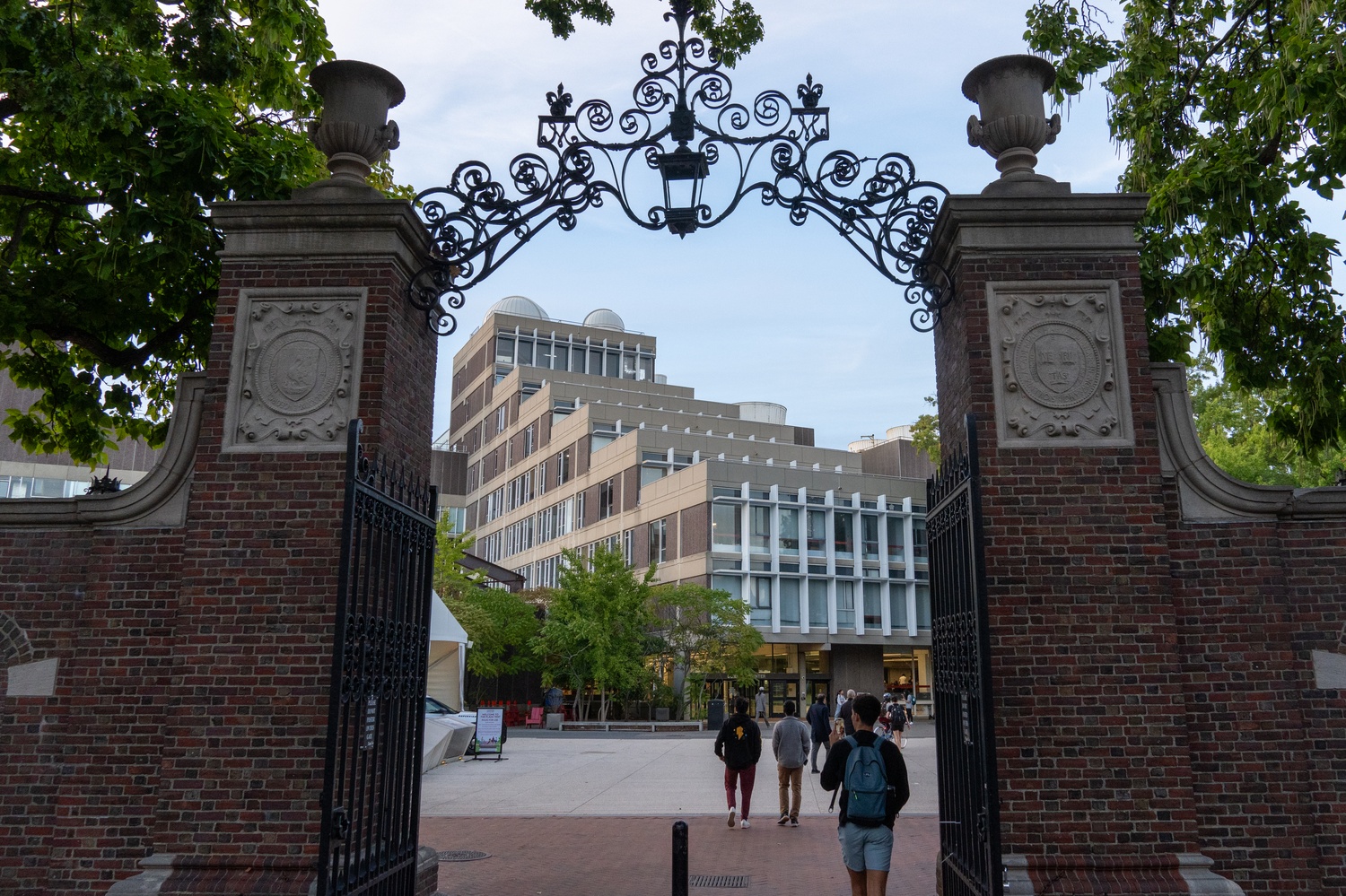
News
Summers Will Not Finish Semester of Teaching as Harvard Investigates Epstein Ties

News
Harvard College Students Report Favoring Divestment from Israel in HUA Survey

News
‘He Should Resign’: Harvard Undergrads Take Hard Line Against Summers Over Epstein Scandal

News
Harvard To Launch New Investigation Into Epstein’s Ties to Summers, Other University Affiliates

News
Harvard Students To Vote on Divestment From Israel in Inaugural HUA Election Survey
Primatologist Christine Webb Criticizes ‘Human Exceptionalism’ in Science at Harvard Talk

Primatologist Christine Webb argued at a Harvard talk on Tuesday that modern science is often skewed by “human exceptionalism,” or the belief that humans have special qualities that make us superior to other species.
Webb, an assistant professor of environmental studies at New York University and former lecturer in Harvard’s Department of Human Evolutionary Biology, spoke about her recently published book, “The Arrogant Ape,” to an audience of about 130 attendees. She contended that human exceptionalism not only biases how the human species perceives itself but lies at the root of Earth’s ecological crises.
Unlike other forms of ecological destruction, like climate change, human exceptionalism goes unchallenged, Webb said — making it particularly insidious.
“This pervasive mindset gives humans a sense of dominion over the rest of nature, set apart from and entitled to commodify the Earth and other species for their own exclusive use,” she said.
The event was part of a talk series on recently published science books organized by the Harvard Book Store. It was co-hosted by Harvard Library, the Harvard Division of Science, and Long Now Boston, an organization that encourages Boston residents to think in terms of long-term sustainability.
Webb said human exceptionalism has also been used to justify inequality among humans.
“Historically, women, enslaved people, and other marginalized groups have been positioned below the ideal human and often not considered fully human at all,” Webb said. “In this way, human exceptionalism has historically denied full humanity to certain groups, subordinating them on their supposed animal-like qualities.”
“Some scholars go so far as to say that the subjugation of animals served as the very foundation of the entire edifice of social stratification,” she added.
Webb focused her Tuesday talk on how human exceptionalism manifests itself in the sciences, particularly in primatology.
She said that primatologists often “stack the deck” by failing to account for the comfort and natural habitats of animals when they conduct experiments. That can lead to results that incorrectly portray humans as uniquely intelligent and altruistic, confirming exceptionalist biases, she said.
She said that researchers also often use human yardsticks — employing human tests for intelligence to gauge the intelligence of other species.
“Taking a human-centric view can only really tell us how other species perform on tasks in which humans and perhaps other primates,” she said. “It tells us very little about other species’ own evolved cognitive adaptations. It would be like blindfolding humans and testing them through their sense of smell.”
She showed the audience a 2006 article from the Onion, titled “Dolphins Not So Intelligent on Land,” to hit the point home, drawing laughter from the audience.
Webb said the sciences often promote a model of evolution that assumes “our species is the end point of evolution and that there is this inexorable trend towards humanness.”
Instead of rooting ourselves in human exceptionalism, Webb argued, humans should root ourselves in humility — a word that shares the same Latin root, humus, meaning earth.
The event drew Webb’s neighbors, friends, and some of her former students, whom Webb said played an integral role in generating the book’s arguments when they took a seminar with her at Harvard. For nearly an hour after the talk, attendees approached Webb to congratulate her, hug her, and ask her to sign their copies of her book.
Candy Leonard, a sociologist and former neighbor of Webb, said her interest in the book was first sparked when Webb told her about it at a block party a few years ago. She said the book is “really a paradigm shift” in how it forces humans to consider critically all the “frameworks that guide our perception of reality.”
Audience member Jonah VanderMel said Webb’s address was the third Harvard Book Store book talk he has attended. He said he was drawn by the potential argument that people should “de-center human exceptionalism in how we think about the world.
“That’s sort of something I’ve been thinking about too, that we shouldn’t really think of humans as separate from animals but just as one animal among other animals,” he said.
Webb said in response to an audience question that she does not think ecological collapse is inevitable. In an interview after the event, she said there are many examples of societies, including indigenous societies in the Americas, who have not been governed by human exceptionalism.
She said in her talk that she combatted her own bias toward human exceptionalism by listening to the animals she studied.
“It’s been the animals all the way who taught me things,” she said.
“One of the most important lessons I’ve learned from working with other species,” she added, is to “never underestimate what they are capable of.”
Want to keep up with breaking news? Subscribe to our email newsletter.
